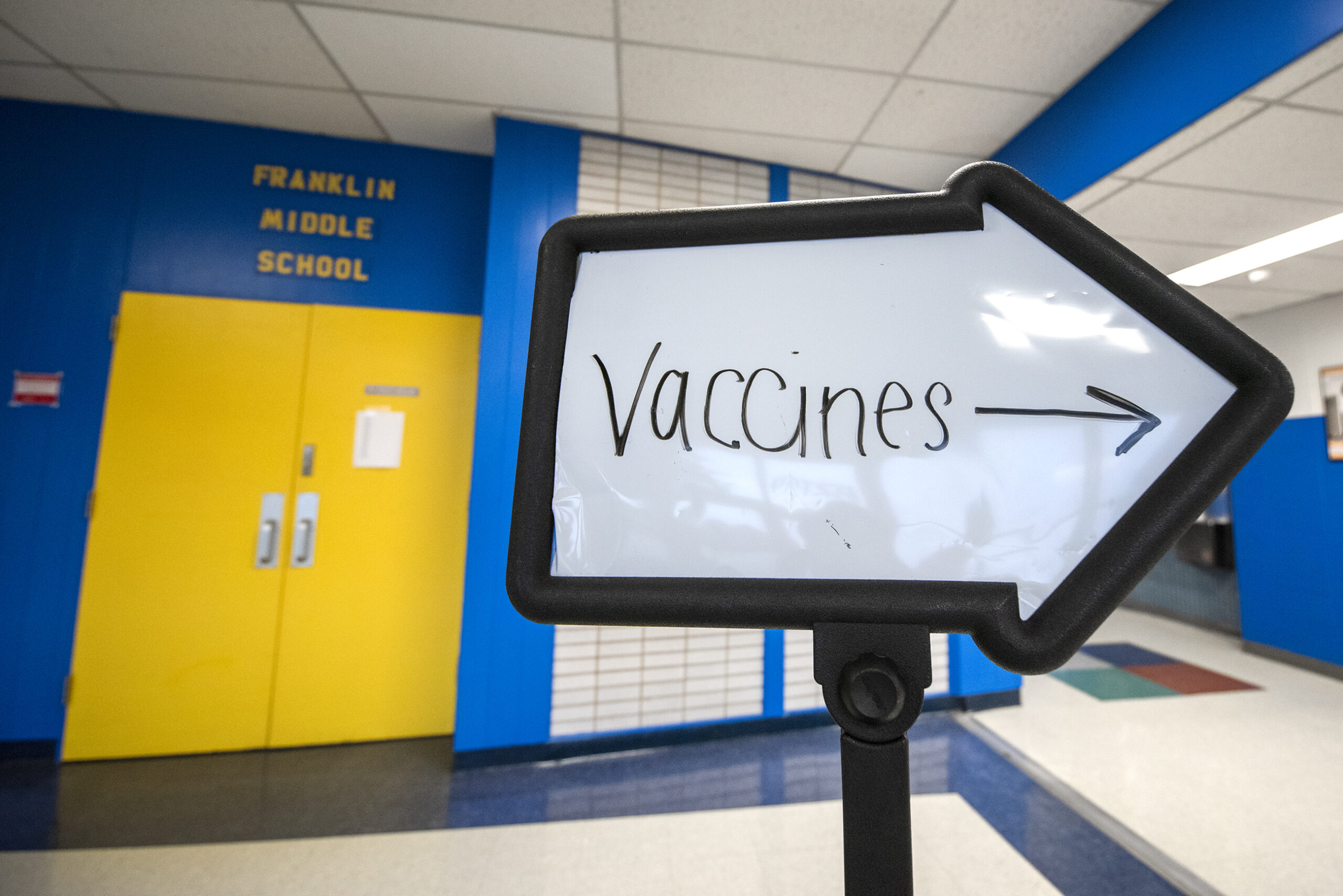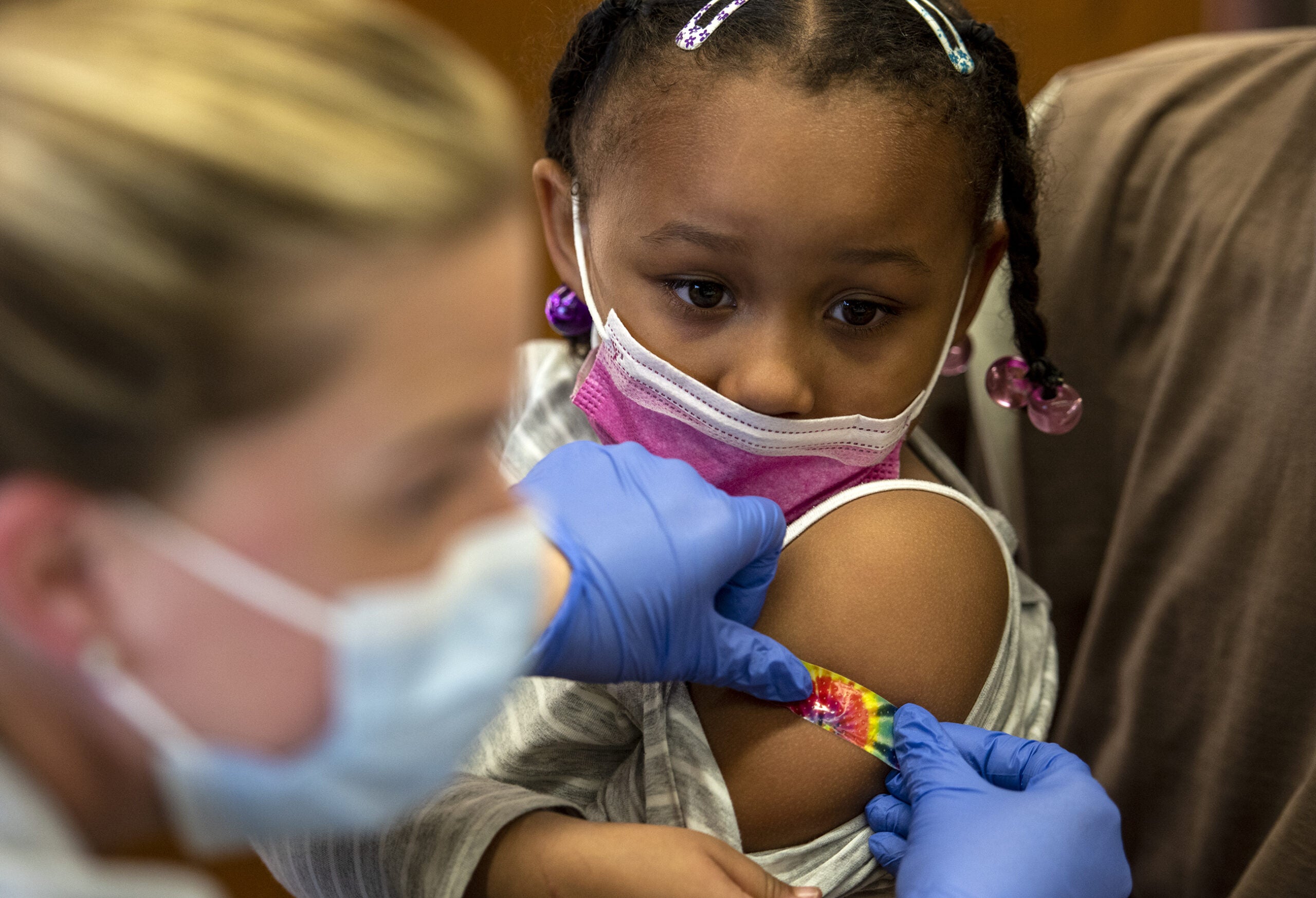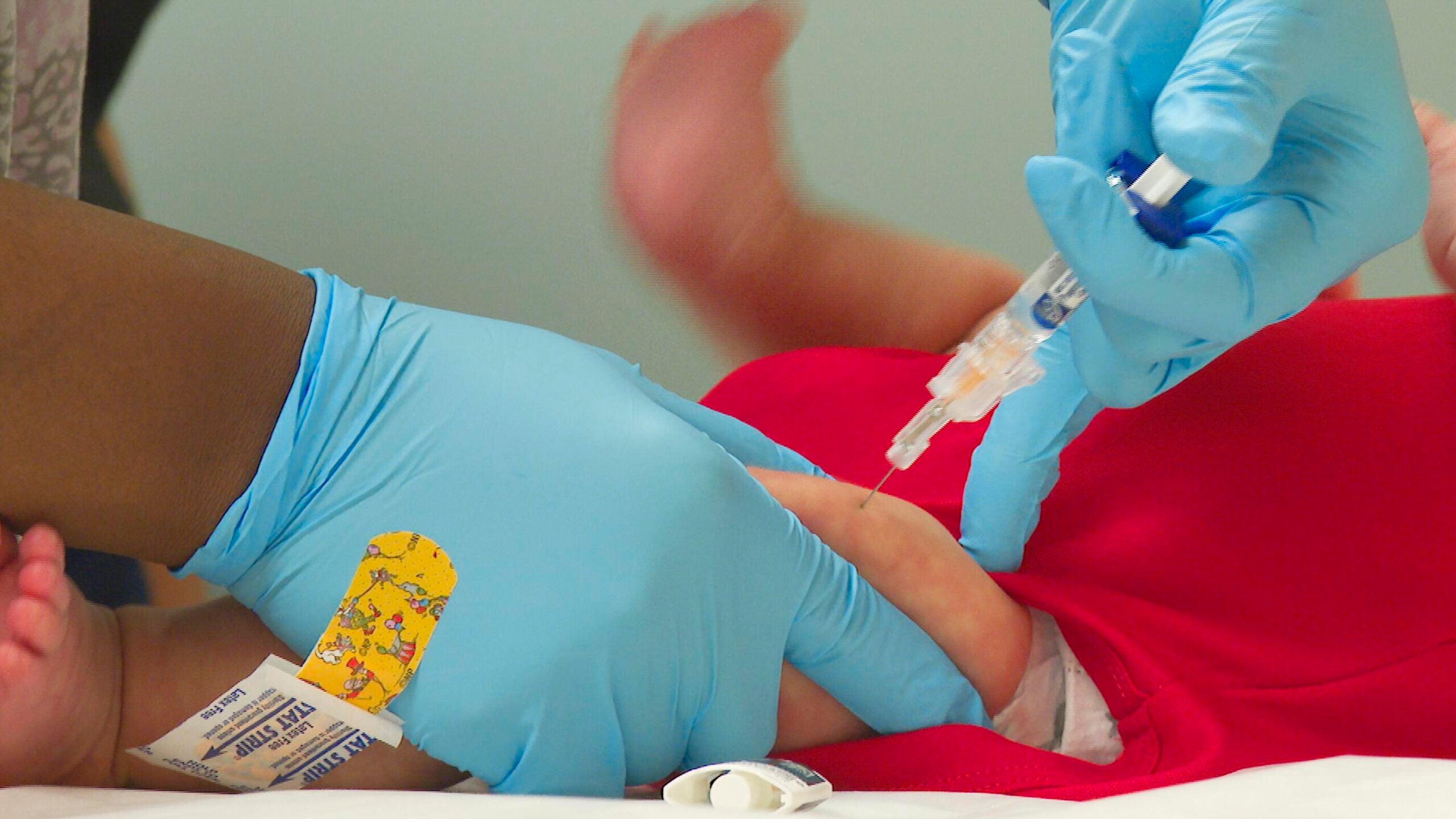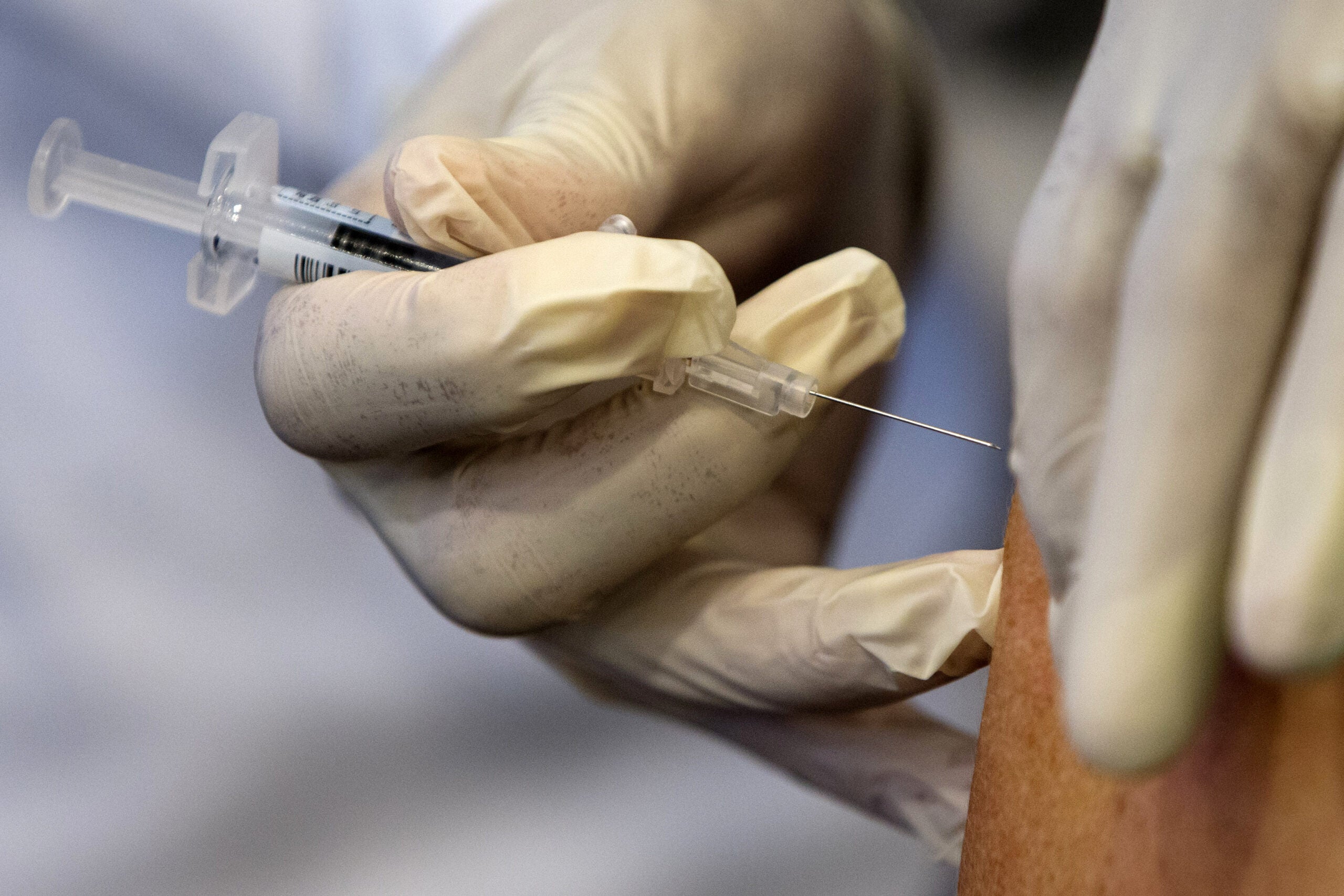The latest COVID-19 vaccine has been released. As the colder months are approaching, the Centers for Disease Control and Prevention is recommending everyone 6 months and older get an updated shot.
Wisconsin Public Radio’s “Morning Edition” Host Alex Crowe talked with Dr. Ryan Westergaard, chief medical officer with the Wisconsin Department of Health Services, about the new COVID-19 booster — where to find one and when to get it.
This interview has been edited for clarity.
News with a little more humanity
WPR’s “Wisconsin Today” newsletter keeps you connected to the state you love without feeling overwhelmed. No paywall. No agenda. No corporate filter.
Alex Crowe: The Food and Drug Administration recently approved these new COVID boosters. What makes these boosters different from the last ones that were rolled out?
Dr. Ryan Westergaard: In the summer, the FDA approved updated formulations of the COVID-19 vaccines. The CDC made formal recommendations that these vaccines can be used this fall as a strategy to prevent the most severe complications of COVID-19. They’re essentially the same vaccines that people are familiar with, but they’ve been modified slightly to be a better match for the specific variants of the virus that have been circulating this summer and fall.
AC: So what are the guidelines for who should be getting these shots? Is it just people who are at risk? Is it just people who are immunocompromised or around those who are? Or is this something that everyone, even fully healthy people, should be looking at getting as we head into wintertime?
RW: The panel of scientists that advises CDC reviewed a large amount of data to answer this question. And they found that while older people and people with comorbidities have, by far, the highest risk of being hospitalized or dying from COVID-19, severe disease and even death can occur in people of all ages, including young children.
After reviewing the evidence that these vaccines reduce the risk in all age groups, with a low risk of side effects, the committee voted to recommend everyone ages six months and older to get one of the shots.
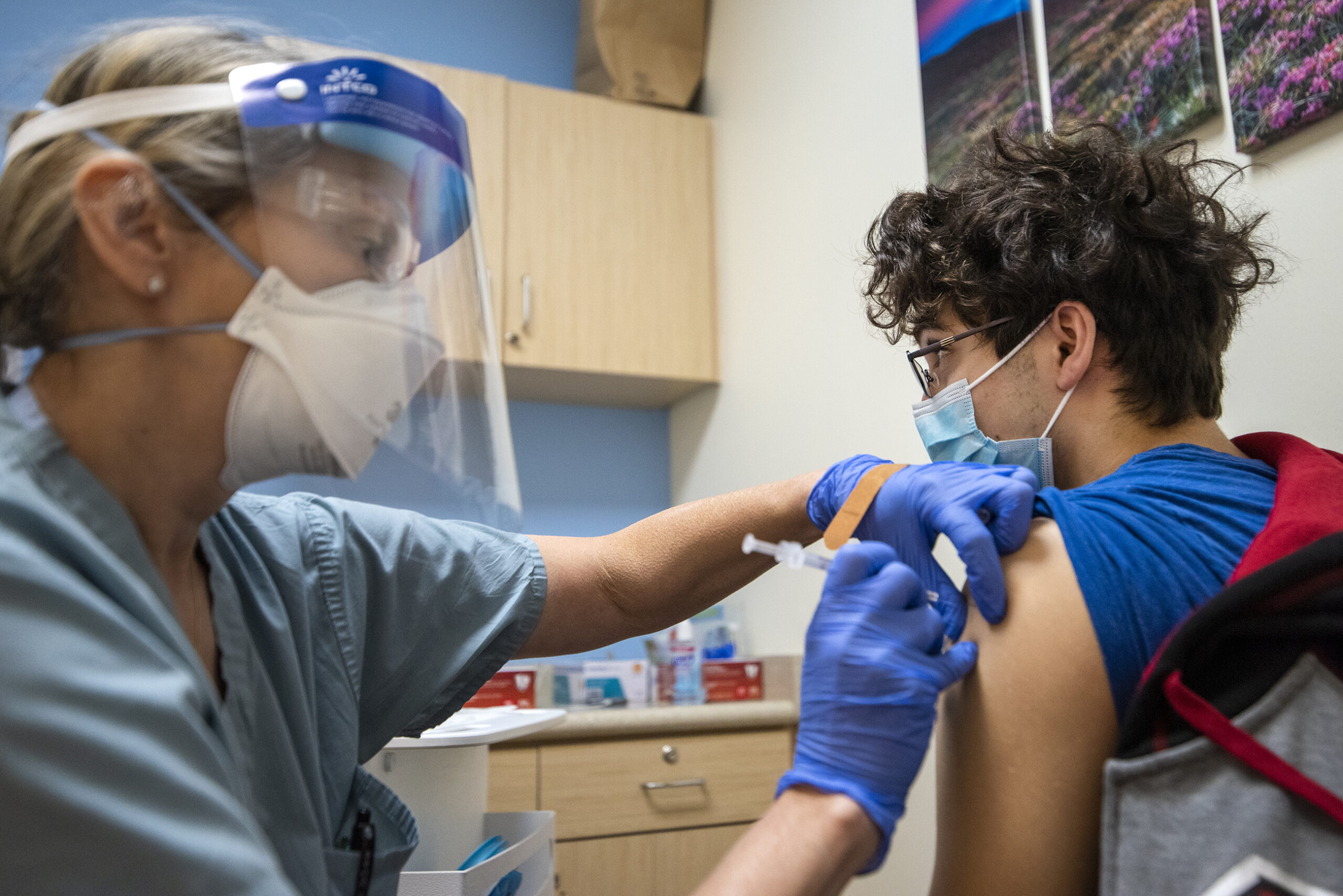
AC: If everyone is recommended to get one of these, what is the process for going about trying to get one?
RW: It’s changed a bit. So the vaccines are starting to be available now already. The way that COVID vaccines are purchased and paid for has changed since the end of the public health emergency. In the past, the government purchased all the vaccines and made them available free of charge to everyone, which is why they were given at pop-up sites in places like gymnasiums. And I believe I got mine at Alliant Energy Center here in Dane County.
But now they’re being purchased through commercial markets similar to all other vaccines, which means there will be a cost for getting one. What not has changed, fortunately, is that everyone should still be able to get a COVID vaccine without any out-of-pocket costs. People with insurance can expect that the cost will be fully covered.
Our state is participating in a new program called the Bridge Access program to make vaccines available for free to people without insurance. The best way to find a free COVID vaccine is for people to visit vaccines.gov and enter your ZIP code.
AC: How important is it, Dr. Westergaard, to get vaccinated now as opposed to waiting a little bit, if I’m someone who is fully healthy? And I’m not around people who are immunocompromised? Should I wait and let them get the shots first?
RW: For most people, my advice is to not wait. COVID activity has been on the rise for the past month or so across the country and here in Wisconsin. And we’ve been seeing small increases in the number of people hospitalized with COVID in some areas of the state.
The one exception to this is maybe if someone came down with COVID recently. The reason for that is when you recover from a COVID infection, similar to vaccination, it’ll give your immune system a boost, giving you protection against the virus in the future. And for this reason, the CDC recommends it is OK to wait about three months after recovering from COVID to get your next vaccine. But for most people, my advice is to not wait.
AC: I just want to know the status of COVID in Wisconsin. Are cases on the rise? How long has that been the trend? And should people be taking extra precautions right now?
RW: It’s a small rise compared to what we’ve seen previously in the pandemic. We have a new system to track the level of virus in wastewater in municipal sewage systems. That’s showing that the level of virus in the community is higher than it’s been at anytime in 2023.
Unfortunately, our new normal coming out of the pandemic is that COVID is just one of several respiratory viruses that we can expect will be going around in the fall and winter each year. So as for other precautions, the influenza vaccines is also available right now and also recommended for 6 months and older. And as always, in cold and flu season, we recommend washing hands, covering coughs and sneezes, and staying home while you’re sick.
Wisconsin Public Radio, © Copyright 2026, Board of Regents of the University of Wisconsin System and Wisconsin Educational Communications Board.
